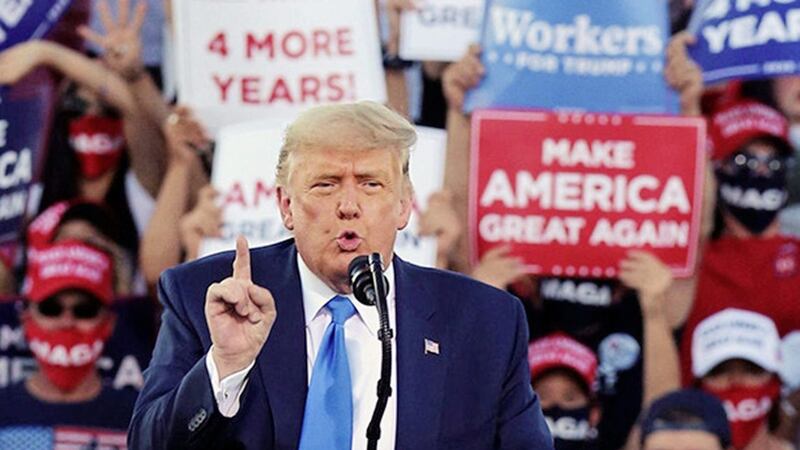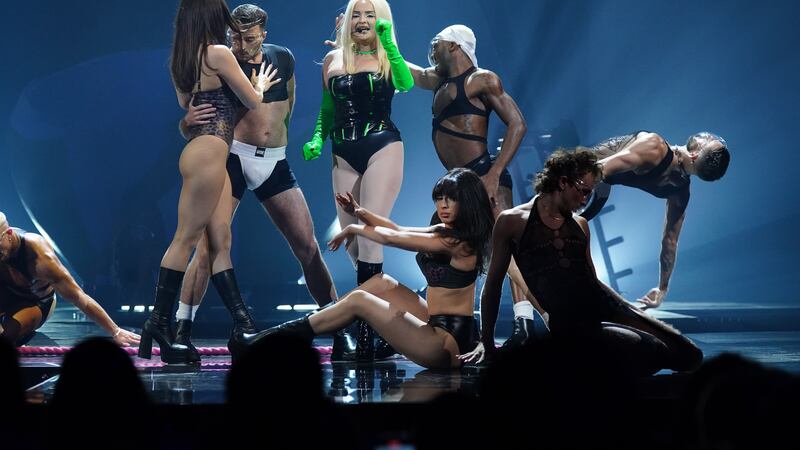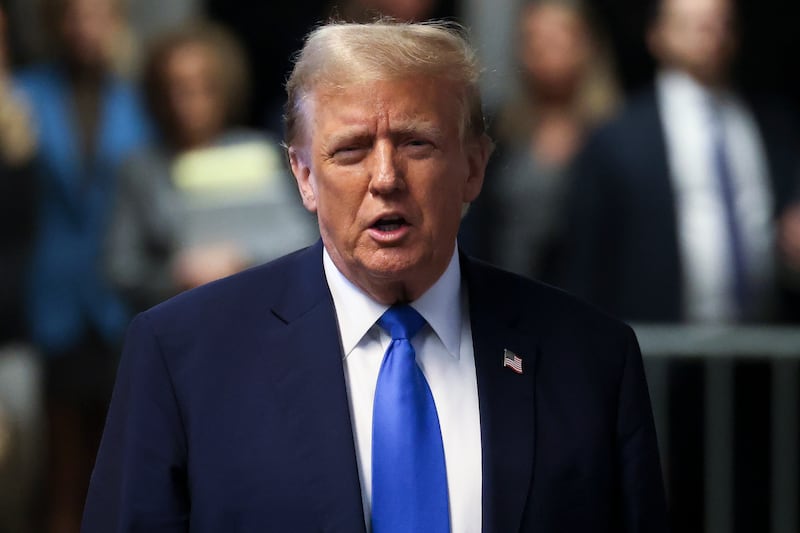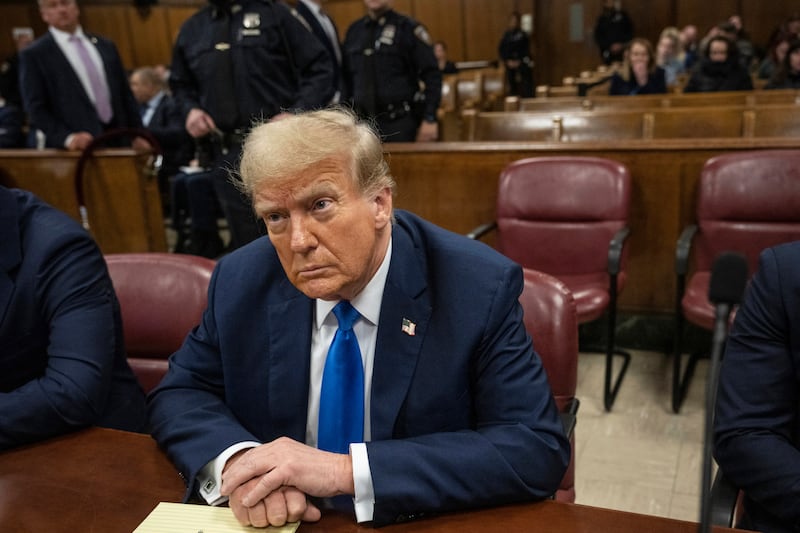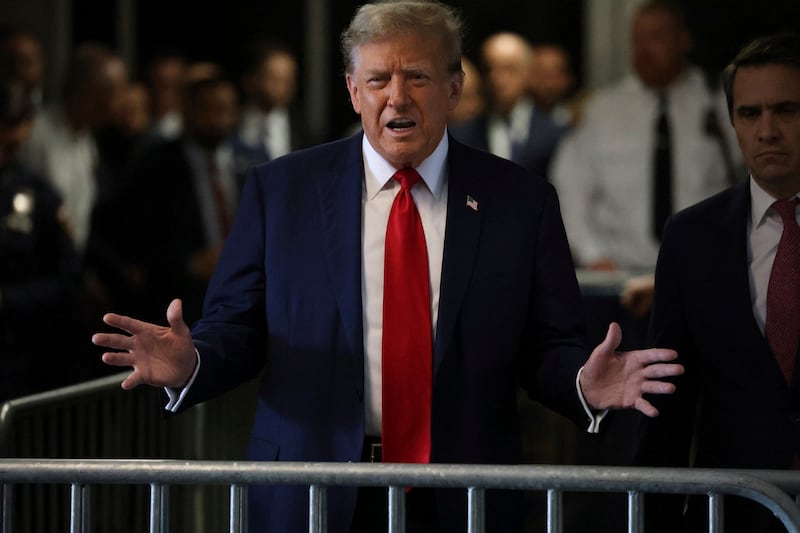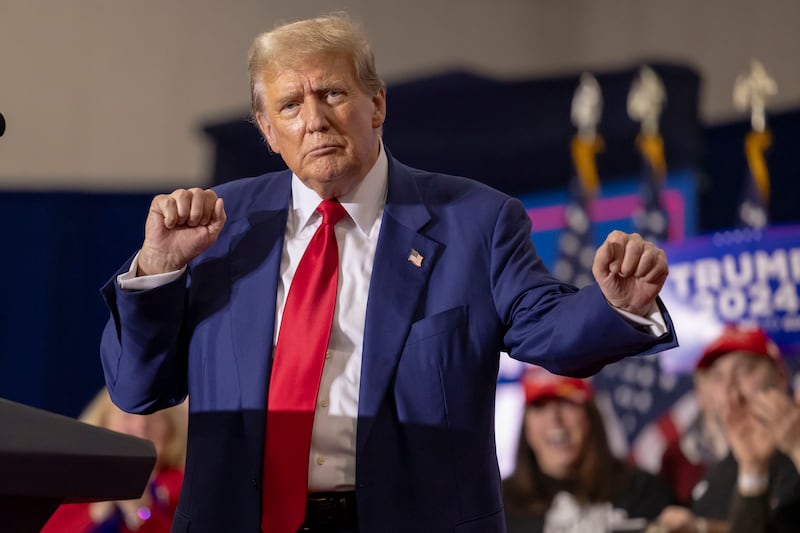TWO British-American experts on US history, civil rights and politics will come together at the Belfast Festival this weekend to discuss the 'hot button' issues currently influencing American voters on the eve of the most controversial presidential election for years.
A lecturer in United States History at the University of Birmingham, Michell Chresfield teaches on subjects including American History 1890-2000 and US gender and sexuality. Having grown up in Alabama and New York, Chresfield has lived in England since 2017 (she is a self-declared "Trump refugee") and is a respected commentator and researcher on American racial identity and social justice.
On Sunday evening, she'll be joined in virtual debate by Sarah Churchwell, professor of American Literature and Public Understanding of the Humanities at University College, London, whose most recent book Behold, America explores white nationalism in America – including the racist history of Donald Trump's phrase 'America First'.
"Sarah and I, we're kind of like a 'schtick' now," chuckles Chresfield when we speak over the phone about the pair's upcoming Belfast Festival engagement.
"I met her through a book festival where they had me read her book and discuss it with her and we've been on the road a couple of times together."
However, the US-born academic admits that the nature of their virtual discussion on Sunday November 1 keeps being redefined almost every time Trump – who has often been less than tacit in his support for white nationalist groups in the face of the Black Lives Matter movement – opens his mouth or tweets.
"Every time the president says something, it changes the dynamics of what we can talk about," she tells me.
For example, our conversation happened in the wake of Trump's "Proud Boys stand back and stand by" comments during the now infamous first presidential debate when he was challenged to condemn the white supremacist group by his Democrat opponent, Joe Biden.
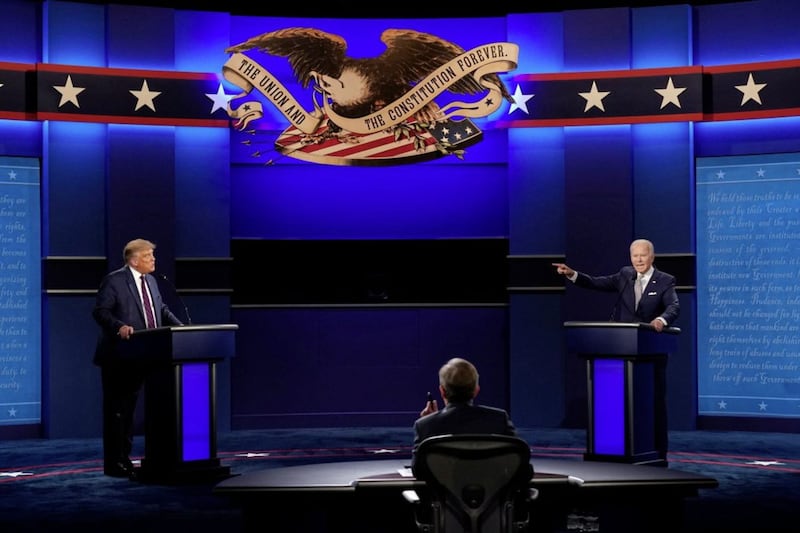
"What interests me most about Sarah's book right now is the white supremacy legacy of the Trump family," says Chresfield.
"His father marched with the KKK and, thinking about his history as a slumlord, there's a lot of history she's tracking [in the book] which is not just to do with America and its founding principles but also Trump himself.
"I think that's made all the more interesting by the 1619 Project [the New York Times Magazine's ongoing reframing of US history from an African American perspective], where the overarching argument is that the gains of African Americans around racial justice are not as secure or transformative as we think they are – and that our founding ideals are not of democracy and equality, but actually the subjugation of black bodies.
"It's been very controversial to Trump and people on the right. He's threatened by it and that's why he recently announced the 1776 Commission, which is supposed to be this new collection of academics and journalists who are going to write 'the real history' of the US. So I'm really interested in the 1619 Project and have actually started teaching a module on it to my students because I feel it's that important."
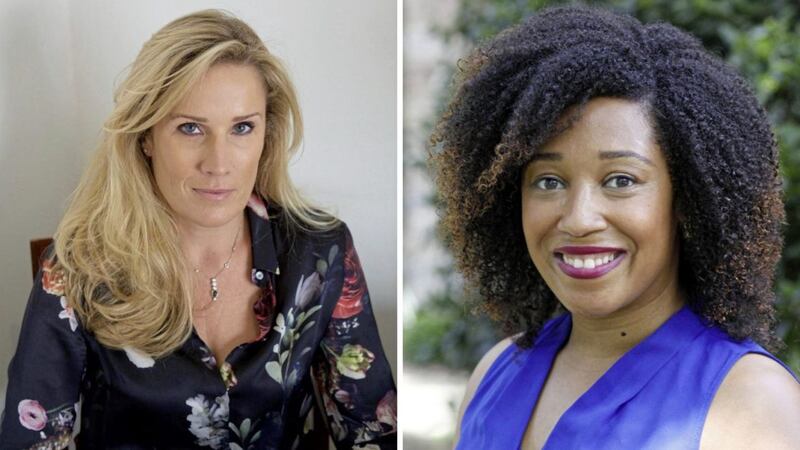
Chresfield adds: "If America was to confront the very problematic and deep-rooted aspects of its value system, that would call into question the very 'project' of America and what it's supposed to do.
"Trump is playing to a particular value system and to a particular desired vision of what America is and what it can be – and it's a vision that's predicated on a particular experience that excludes people of colour, people who are marginalised because of their sexuality or orientation. It's a particular version of history where certain groups of people don't exist, or if they do exist they're certainly not included in his conception of what a citizen is."
Certainly, 2016's presidential pendulum swing which found voters endorsing Republican Trump's singular vision of 'America First' in the wake of a historic two-term presidency for America's first ever African American leader, Democrat Barack Obama, had sinister implications.
Indeed, according to Chresfield, Obama's time in the Oval Office now seems like something of a false dawn in terms of the US finally resolving its deep-seated racial divisions.
"I think people saw Obama as kind of like the deliverance of the 'post-racial' America," she says.
"Like, because he was able to ascend to office, that somehow these issues ceased to exist. I think that may have been true for a moment, but looking back on it now you can see that we also had this kind of [racial] swing-back.
"Having now got a little bit of distance from that time to look back, what's interesting is that some of the most jarring racial incidents are happening during Obama's presidency: we got Trayvon Martin, we got Tamir Rice, we got The New Yorker's cover with a caricature of Michelle Obama as basically a monkey."
Chresfield adds: "I don't think that every Trump supporter is a racist or a sexist, but I do think that clearly those things were not objectionable enough to dissuade a certain section of the voting public before the last election.
"We haven't escaped a transition in party in a while, so it was probably always going to be a Republican [elected in 2016] – but I didn't see Trump. For me, he's a departure from the kind of 'respectable' electoral politics that I just didn't see coming.
"Hilary Clinton had problems, but she was still a very worthy candidate. However, there were a lot of people on the left who didn't do their duty. They thought they could get away with not voting for her and that she'd still get into office. So there's responsibility for this current situation to be had by many parties."
So, now to the $64,000 question: can Joe Biden beat Trump at the polls on November 3, and even if he does, how much of a corrective is another rich, old, white guy coming to power going to be for the country's current crises?
"I think it is possible – but I can't be optimistic, because I was optimistic last time and I can't tell you the devastation that I felt," admits Chresfield, who was living in Pennsylvania in 2016 – a so-called 'battleground' state for the presidential election – and thus got to witness her country's Trumpian transformation first-hand.
"I went to bed, and no-one was wearing Trump/Pence stuff: I woke up the next day and it was like they had come out of the woodwork. The betrayal I felt, it was like I just couldn't trust my reading of American politics any more – and four years later I still haven't regained that confidence.
"But I am hopeful. And what does seem clear to me is that we are now looking at a profound realignment of values when it comes to what true equality, inclusion, bodily autonomy and the right to live looks like and who gets to access that.
"Anyone who cares about these issues is going to be making demands on a Biden administration that they will not have foreseen a year ago. So even if Biden wins, it won't be happiness and roses and peace. These kinds of upheavals are here to stay."
:: Sarah Churchwell and Michell Chresfield: US pre-election discussion, Sunday November 1, 7pm. Tickets for this online event and full festival programme available via Belfastinternationalartsfestival.ticketsolve.com
